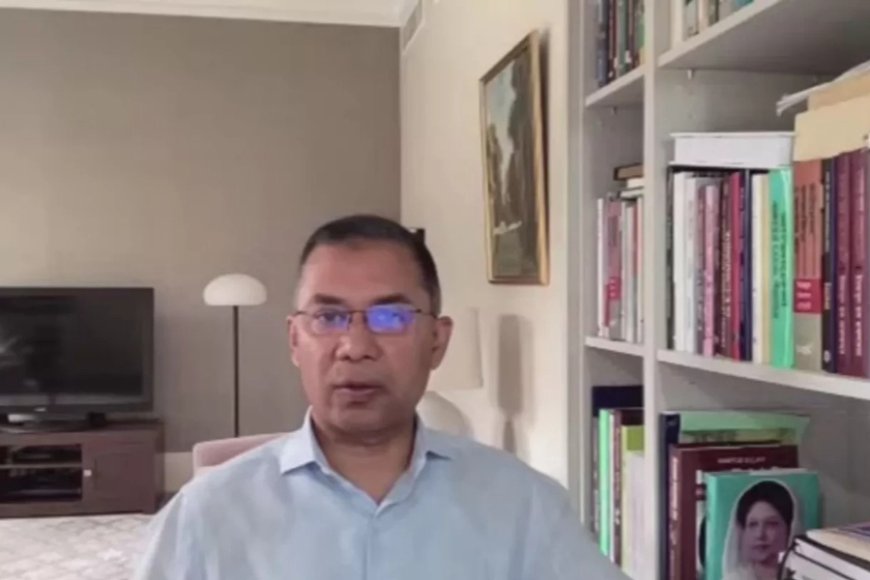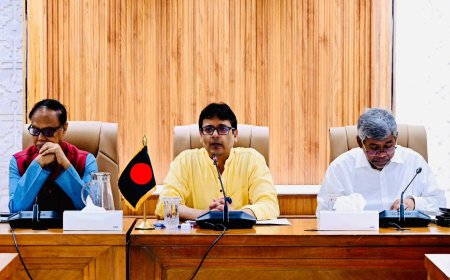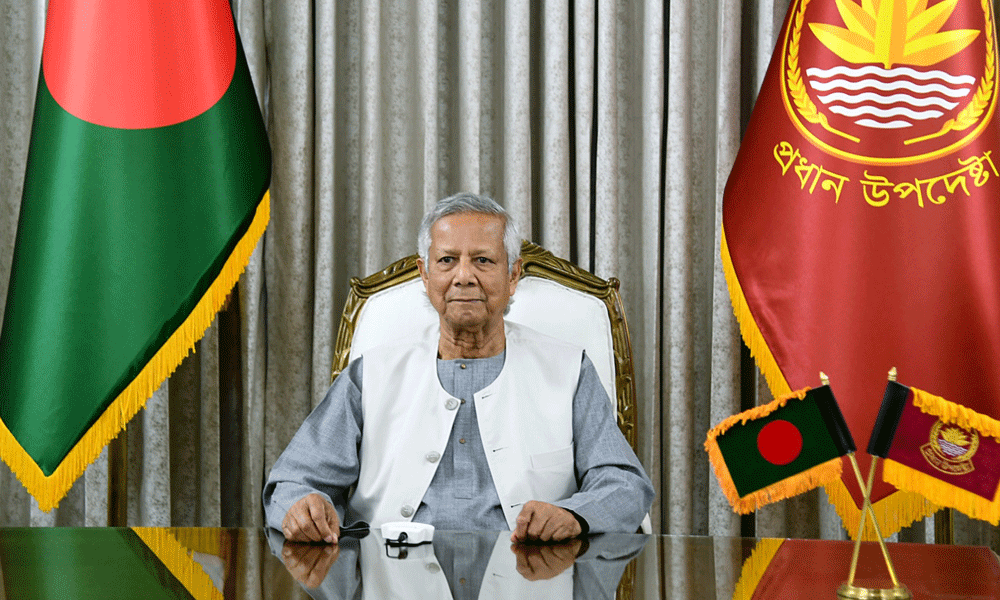Tarique warns that no one will be allowed to destroy democracy or restore fascism
Tarique warns that no one will be allowed to destroy democracy or restore fascism.

Tarique: No Force Will Be Allowed to Destroy Democracy or Revive Fascism in Bangladesh
BNP Acting Chairman Tarique Rahman on Tuesday issued a strong warning that no force would be allowed to "murder democracy" or "bring back fascism" in Bangladesh.
In a video address to the nation marking the anniversary of the July-August mass uprising, Tarique said, “A historic unity against fascism has been forged through the blood and sacrifices of our thousands of martyrs on the streets. Fascism will not return to this country. No one will be permitted to dismantle democracy.”
He asserted that Bangladesh would not be reduced to a subservient state again. “I believe this unity on fundamental national issues remains intact—and it must be preserved.”
Tarique urged the public to observe August 5 every year as a day of renewed commitment to democracy, good governance, and humanity.
“Let this day remind us annually to recommit ourselves to democratic ideals and human dignity. On this journey, I—and my party, the BNP—seek the support and cooperation of all democracy-loving citizens,” he said.
In a democracy free from fascist rule, he noted, political differences are natural and even necessary. These differences, he stressed, are not flaws but the essence of democracy itself.
“But I appeal to all political parties and democratic forces—let us remain vigilant so that our disagreements do not provide any opening for fascism, extremism, or radicalism to re-emerge.”
He called on all political groups to present their programmes and policies directly to the people. “The people will choose what they accept or reject. That is the foundation of a system where power truly resides with the citizens, through regular democratic practice.”
Genuine people’s power, he emphasised, can only be established when citizens are able to freely elect their representatives—from local government bodies to the national parliament—and hold the right to form or change governments through voting.
“We must empower the people politically, allowing them to exercise their rights in every sphere—from governance to daily life. Without strengthening the people, nothing else can be strong or lasting.”
Tarique recalled that on August 5, 2024—a date he described as one of the darkest in Bangladesh’s history—“the most despised fascist” fled the country. On that very day, he had issued a message urging restraint and dignity in victory.
Reiterating that message, he once again called on pro-democracy supporters to refrain from mob violence, avoid taking the law into their own hands, show respect for others’ rights, and especially not act violently towards women.
He said BNP envisions a Bangladesh where every individual—regardless of party, religion, ethnicity, belief, or doubt—can live together in safety, just as a mother dreams of a secure future for her children.
“There can be no justification for defending those fascist elements who have inflicted irreparable damage on our country,” Tarique said.
He compared the past 15 years of rule under Sheikh Hasina’s government to a period of unrestrained authoritarianism, rivaled only by the early post-independence years.
“Even Hitler’s Nazism is not remembered with pride. And just as a thief who donates part of their loot remains a thief, those who subtly defend fugitive fascists while criticising the interim government are also doing something unacceptable.”
He stressed that what occurred on August 5, 2024, was unprecedented not only in Bangladesh’s history, but in global terms.
“That day, fascist rulers fled the Ganobhaban, so-called MPs abandoned parliament, the Chief Justice left the court, the Chief Khatib escaped Baitul Mukarram Mosque, and ministers deserted the cabinet. Their allies vanished. Yet even now, those fugitives show no sign of remorse or apology.”
Drawing a parallel between two defining years, he said, “1971 was our struggle for independence; 2024 was the struggle to protect that independence.”
Tarique paid tribute to the martyrs of both 1971 and 2024, saying Bangladesh will always remember their sacrifice. “At every critical juncture since 1971, countless lives have been given to preserve our freedom and restore democracy.”
He called on the nation to repay its debt to the martyrs by ensuring political and economic power to the people, and by building a Bangladesh founded on equality, dignity, justice, and democratic values.
Tarique said the people of Bangladesh will now observe August 5 each year as a public holiday—Mass Uprising Day—to mark what he called the fall of fascism.
“A year ago today, on August 5, 2024, the fascist Hasina regime fled. The country was freed from the grip of tyranny. For freedom-loving people, this day symbolises triumph and liberation. The interim government has officially declared it as ‘July Mass Uprising Day.’ From now on, it will be observed as a national holiday.”
He recounted the repression under Hasina’s rule, describing it as a reign of terror featuring enforced disappearances, extrajudicial killings, abductions, and mass persecution.
Tarique said that during the 15-year struggle against fascism, countless BNP and pro-democracy activists suffered. “Millions of opposition leaders and supporters faced false charges, were driven from their homes, and even estranged from their families.”
He highlighted the existence of secret detention facilities, such as the notorious Aynaghar, where dissidents were kept in dark cells for years. “Many, like former MP Ilias Ali and Commissioner Chowdhury Alam, are still missing.”
He held the Awami League regime responsible for dismantling national institutions, manipulating elections, corrupting the judiciary and Election Commission, looting the banking sector, and transferring approximately Tk 28 lakh crore abroad.
Tarique also hailed the courage of the Bangladeshi people during the July–August uprising: “People from all walks of life—students, workers, farmers, journalists, mothers—took to the streets for democracy. The regime fired on them from helicopters. Children and youth were killed.”
According to him, over 1,500 people lost their lives, and at least 30,000 were injured during the uprising. Hundreds were permanently disabled or lost their eyesight.
“These sacrifices have created an unshakable national unity against fascism,” Tarique concluded.
What's Your Reaction?





















































































